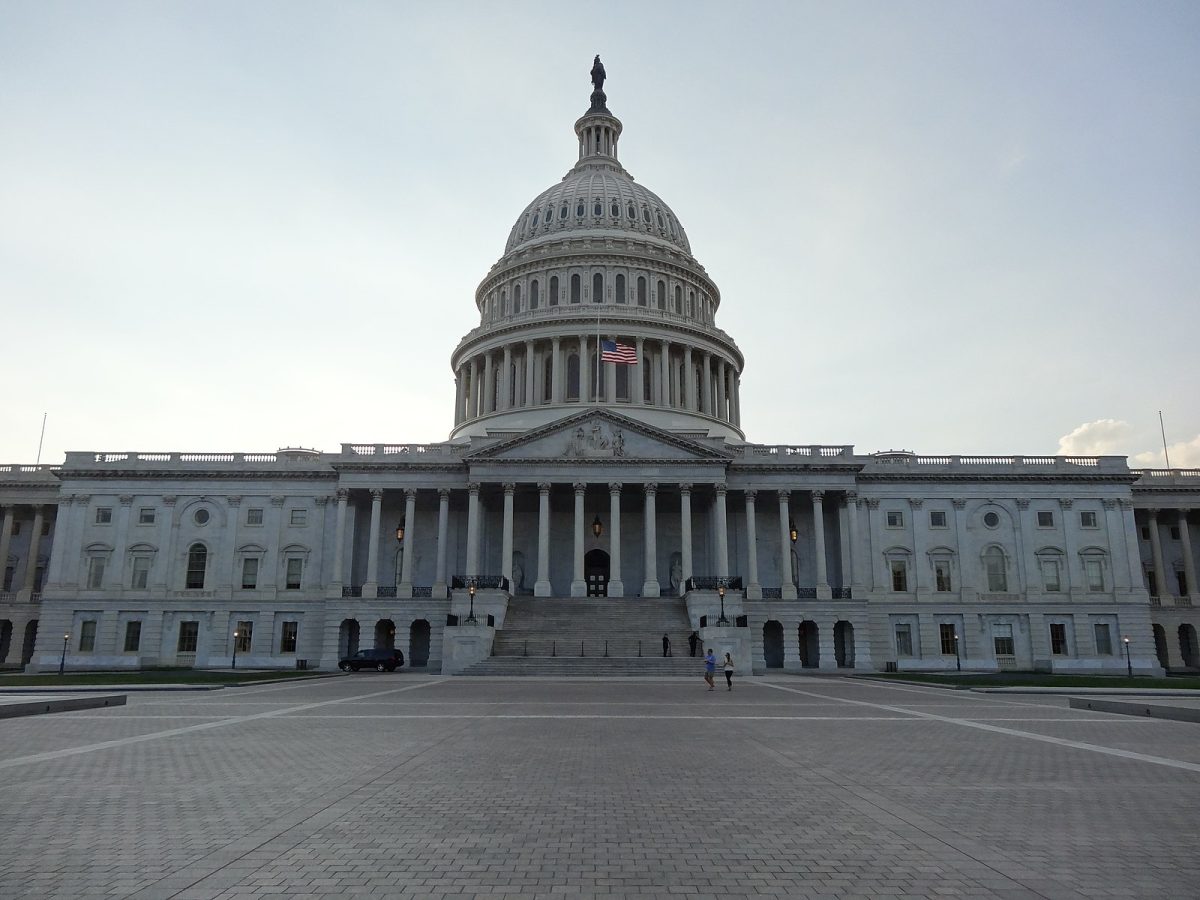For cinephiles young and old, the summer of 2023 marked a truly momentous occasion. July 21 ushered in the shared theatrical release of Christopher Nolan’s “Oppenheimer” and Greta Gerwig’s “Barbie,” two films that somehow ended up being perfect same-day watches for throngs of moviegoers, perhaps due to their irresistible juxtaposition. “Barbenheimer” — a catchy term used for the two films’ fusion on social media — not only became a beloved addition to the cinema lexicon, but also the event of the summer.
“Oppenheimer,” adapted from Kai Bird and Martin J. Sherwin’s biography “American Prometheus,” is an intimate portrait of physicist J. Robert Oppenheimer (played by Cillian Murphy) — whom director Christopher Nolan called “the most important person who ever lived” in a CBS Sunday Morning interview — and his world-altering creation, the atomic bomb. Centered primarily around the implications of the bomb’s use against Japan during World War II, “Oppenheimer” is staggering, disturbing, pensive and existential — you know, everything a breezy summer blockbuster should be. Greta Gerwig’s “Barbie” follows Mattel’s cherished plastic icon, portrayed effortlessly by Margot Robbie as she ventures into the ‘real world’ to gain a new perspective on the meaning of life and her own identity. The film finds its sweet spot in the fantastically picturesque and vibrant “Barbie Land.”
Jason Winter ’25 excitedly awaited the films’ releases long before the summer. He said when “Oppenheimer” and “Barbie” finally debuted, he went to the theaters to see both on consecutive days.
“I did see both of the films and planned on doing the ‘Barbenheimer’ challenge, but sadly I could not because of my work schedule,” Winter said. “I did end up seeing ‘Oppenheimer’ one day and then ‘Barbie’ the next day, though, so it was kind of the same. For me, it absolutely was an event — my friends and I were actually waiting months for both movies to come out, so the anticipation was building for a while.”
Alex Varner ’26, who first saw “Barbie” with her mom the Thursday night before its release, mentioned her theater’s eagerness to embrace the fun-loving spirit at the core of the film and celebrate its title character.
“When we went, we saw everyone was dressed in pink,” Varner said. “Which, I mean, I’m sad that we didn’t take the minute to consider, like ‘hey, maybe we should [do that].’ In our theater they were selling like, little Barbies and little cars that you could put the Barbie in.”
Both Varner and Winter remarked on the inviting and upbeat air of “Barbie” and how enjoyable it was to watch. Pointing out its natural playfulness, Varner in particular said she felt that the film was easily able to land with the audience.
“‘Barbie’ I enjoyed more,” Varner said. “It had more humor, it had more connecting to the audience. It didn’t take itself too seriously.”
Winter said he liked both “Oppenheimer” and “Barbie,” but mentioned that the latter film’s lightheartedness was in keeping with the style of the summer blockbuster.
“I’m typically not into historical movies, so I think I enjoyed ‘Barbie’ just a little bit more, but I still had a great time with both,” Winter said. “I think I found ‘Barbie’ more entertaining also because it had such a feeling of a summer movie, so it was something I was able to go to with my friends on a warm day and just have a nice laugh.”
While “Oppenheimer” was arguably not as light as Barbie was on her pointed-turned-flat feet, it still left a profound impression. A masterful addition to Nolan’s already stunning filmography, the film cemented itself as one of the most lauded films of the summer. Annie Ogle ’26 said she was exceedingly impressed by the film and was drawn into the protagonist’s fascinating and personal narrative.
“My initial thoughts on ‘Oppenheimer’ were that ‘Holy sh*t. That was really good,’” Ogle said. “As a bit of a history nerd, I enjoyed the deep dive that Christopher Nolan took into Oppenheimer as a person. The way that Nolan frames Oppenheimer is a human, and the way Cillian Murphy plays the character is wonderfully raw.”
Needless to say, both “Oppenheimer” and “Barbie” are able to stand alone as two impactful achievements in filmmaking, each enamoring audiences in their own distinct ways. But, when brought together, they made quite the unstoppable late-July duo. Winter found that the two movies were unlikely companions. He said the shared release date perhaps beckoned moviegoers to enjoy their tonal clash and experience quite the spectrum of feelings.
“If people were already excited to see ‘Barbie’ and ‘Oppenheimer’ separately, then the fact that both movies came out on the same day would just increase that excitement tenfold,” Winter said. “I think a lot of that also came from how absurdly different the movies were. They have such different tones, so with them sharing a release date it might’ve piqued people’s interest just to have that range of emotions.”
Varner also mentioned the delightful contrast between what she described as the “pink and happy” “Barbie” and the “gray and depressed” “Oppenheimer.” For her, the rollercoaster ride of emotions was reflective of the theater experience.
“Oh, I was bawling my eyes out by the end of ‘Barbie,’” Varner said admittedly. “And then ‘Oppenheimer’ I just like, left the movie, and I looked like I was stone-faced, just silent. And my mom said ‘that was the most depressing three hours.’”
Ogle, who was struck by the poignant storytelling of “Barbie,” mentioned that she was also engulfed in tears after watching the film.
“There was something raw and emotional about the way that Greta Gerwig told this story,” Ogle said. “I’ll admit that I have seen ‘Barbie’ three times, and each time I ended the movie crying and at least twice holding my own mother’s hand.”
Captivating a wide range of audiences, the eclectic tag team of “Oppenheimer” and “Barbie” conquered the summer box office, generating a combined $235.5 million in their opening weekend alone — notably, one of the highest box office openings of all time. Varner said she did not think those involved with the production of either film could have envisioned the “Barbenheimer” mania that ensued.
“I’m not going to say, like, at all that these guys planned [Barbenheimer] to happen,” Varner said. “But I think they’re both probably pretty happy with the end results of it.”









